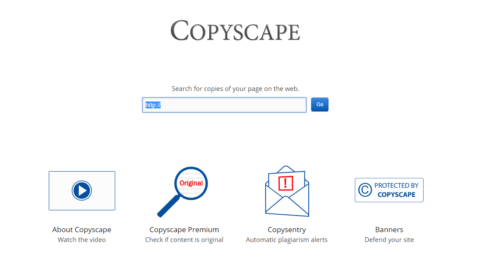Managing a website, especially if you are running a small business, is an integral part of your digital marketing campaign. However, it will not produce the results you are looking for if you have low online visibility.
 One effective process that produces viable results is incorporating effective Search Engine Optimization (SEO) into your website development. SEO means optimizing your site to achieve a higher Search Engine Results Page (SERP).
One effective process that produces viable results is incorporating effective Search Engine Optimization (SEO) into your website development. SEO means optimizing your site to achieve a higher Search Engine Results Page (SERP).
Higher results mean more people find your website. Increased traffic means more chances to close the deal, which leads to higher revenue.
Google and other search engines, such as Bing and Yahoo, have complicated algorithms. These decide where your website lands in their ranking. Use SEO to increase your chances of landing on the first page of the search engine site so that people locate you.
In fact, many websites aim for the top three because studies show that often a visitor only views the first three results.
It’s a complicated process that is only completely understood by the experts. If you are just learning about search engine optimization, there are simple ways to improve the ranking of your webpage or blog. They don’t require much time or money.
Best SEO tips for beginners:
1. Best content
A large part of Google’s algorithm focuses on determining helpful and informative content. If your website is filled with random wordings and doesn’t contain high-quality content, you could have a low page ranking. In the past, sites with thousands of keywords thrived. Now, Google punishes those sites and won’t list them.
Watch this video on how to create great content:
High-quality content should play a major part in your SEO. Your single most important task is creating original, informative, and engaging content.
2. Original content
The content you create should be 100% original and contain no signs of plagiarism.
In fact, if you copy photos and text from another blog, Google will punish your site with a low ranking. This will not impact the original site.
 Today, many businesses hire freelancers from the web. What can you do to ensure that your hard-earned funds produce quality content? One online tool is called Copyscape.
Today, many businesses hire freelancers from the web. What can you do to ensure that your hard-earned funds produce quality content? One online tool is called Copyscape.
Copyscape is a useful tool that checks for signs of plagiarism. If it flags a sentence fragment or a full sentence, it doesn’t necessarily mean it’s been plagiarized. But if it’s a complete sentence, it’s good practice to rewrite it. If an entire paragraph or article shows as being plagiarized, come up with new content.
3. Richness of content
 The length of the content also determines the importance. There are many sites with only 40 or 50 words for each blog post. These sites won’t rank very high. To create informative information, the size of the article should be between 450 to 700 words. The word count determines the proper SEO keyword density. We will talk about this later.
The length of the content also determines the importance. There are many sites with only 40 or 50 words for each blog post. These sites won’t rank very high. To create informative information, the size of the article should be between 450 to 700 words. The word count determines the proper SEO keyword density. We will talk about this later.
The content of your website is not limited to articles. You can and should include images, videos, audio, and infographics.
If you don’t observe proper SEO techniques with images and videos, they do nothing to improve your ranking. When posting a picture, use alt images to associate distinct keywords with it. The same goes for videos. Place a proper tag with the video, title, and description as this practice helps spiders see your website.
4. Add keywords
Keywords are the set of words that the online users type into the Google search box to find a website. For example, say you’re searching for an article on SEO. Type “SEO” or “Search Engine Optimization” into the box.
 Keywords may also be called tags on blogging sites. They are generally one word but can also include key phrases. Most sites only allow a certain number of keywords. They don’t want to be punished for allowing unlimited paragraphs of keywords on their hosted sites.
Keywords may also be called tags on blogging sites. They are generally one word but can also include key phrases. Most sites only allow a certain number of keywords. They don’t want to be punished for allowing unlimited paragraphs of keywords on their hosted sites.
The keyword density is the principal factor in determining the theme of your content. This is used by the robots to crawl and index your site and then determine your Google page ranking. The density of the SEO keywords should be between 1 to 3% of the length of the article. For 1,000 words, use the keyword or tag 10 to 30 times.
If you use it 30 times, then it may not read correctly. That’s why many content writers err on the side of caution and use the keyword 10 times or less. The text must read well and interest your customers.
 For example, your so-called SEO expert says to use “marketing SEO” in your article, but it doesn’t make sense. Rethink your keyword and hire a new expert.
For example, your so-called SEO expert says to use “marketing SEO” in your article, but it doesn’t make sense. Rethink your keyword and hire a new expert.
Use Google tools for free, such as Analytics and AdWords, to determine the right keywords to use. After all, they want your website to succeed.
SEO is an intricate process. It involves factors such as creating backlinks, indexing on directory sites, and determining the text and HTML ratio. But there are many others.
Begin with keywords and increase your learning with new processes. If all else fails, hire a good SEO expert like Bleeding Bulb to help you out.
To learn more, contact us or subscribe by entering your email in the field below.


